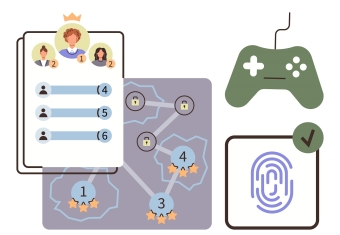In this increasingly digital age, cyber-attacks are becoming more common and more sophisticated. As an Edtech company, we at Interserv must be constantly vigilant with upcoming cyber threats and the numerous ways we and our clients could be made vulnerable. One of the more prolific cyber-attack methods we frequently come across is Phishing.
Read on to gain a basic understanding of what Phishing is and how you can identify the warning signs to protect yourself.
What is Phishing?
Phishing is a way cyber criminals can trick you into giving them personal information by pretending to be from large organisations you know or trust. Their approach centres on sending messages via emails, SMS/texts (smishing) or phone calls (voice-phishing or vishing). These messages are often generic and sent to a large group of individuals or organisations in the hope of increasing the chance of “catching” a victim.
More specific forms of phishing are spear-phishing and whaling. Spear-phishing emails, texts or phone calls are highly personalized for a specific organization or individual. They are therefore more likely to deceive potential victims due to the amount of research and time spent personalising messages that appear to be from legitimate senders. Whaling uses the same personalised strategy of spear-phishing attacks, except attackers specifically target higher level management to expose financial and confidential information. Whaling attacks hope to extract more valuable, classified information by taking down big targets, which can magnify the damage inflicted upon an organisation.
Phishing Consequences
Falling victim to a Phishing scam can have several consequences for the victim, be they an individual or an organisation. Information is valuable and if cyber attackers manage to obtain your personal data, repercussions can include:
- Additional unauthorised access to sensitive data
- Financial Loss
From a business perspective, if your organisational or client data becomes endangered, this also can lead to:
- Disruption to Business Operations
- Compromised Business Systems
- Theft of intellectual property, trade secrets, propriety information
- Loss of customer confidence
- Damage to Reputation
Warning Signs
Watch the following video to learn about some of the warning signs of a potential phishing attack.
In addition, another prominent give away can be frequent and often obvious spelling or grammar mistakes within the message.
Catch that Phish!
Phishing is a common way in which cyber attackers gain access to your personal or organisational data. This can have a number of repercussions, including financial loss, disrupted operating systems and loss in customer confidence.
As an Edtech company, cyber security awareness is crucial knowledge for Interserv staff so that we can protect our operating systems and client data. However, with our lives becoming more ingrained in the digital world, it is also important to be aware of cyber security threats so that we can also defend ourselves on an individual level.


